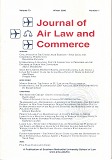FAQ #34: Who would issue and record Lunar land deeds?
The Lunar settlement company itself would do the surveys, issue and sell the Lunar land deeds, and run the office that keeps the records of who owns what and where the boundaries are. Or it could contract other companies to do some of those things under the settlement's authority and supervision.
That's one of the areas of a settlement's defacto sovereignty.
Recognizing a permanent Lunar settlement's land deeds would not involve the US in surveying Lunar land or keeping the records.
In ruling on a Lunar land deed, the US courts would ask for proof that the settlement met the criteria in the legislation, that the Lunar survey and recording was done properly to avoid fraud, and that the deed in question isn't a forgery.
But the US could not operate the land office. That would be too much like "national appropriation" (forbidden by Article II of the 1967 Outer Space Treaty). Besides, the settlement company will also be selling Lunar land to people in other countries, with no US involvement at all.
In the analogy we use to test questions like that, two Americans, both located in New York, enter into a contract for one to sell the other a piece of property located in France - and the buyer later questions the validity of the deed.
Since the sale contract was entered into in the US, a US court would be called on to settle the dispute and recognize the validity of the deed. But the deed itself would have been issued by French authorities, and transfers of ownership - even between two Americans - would have to be recorded in a French land office.

Questions & Answers about Lunar Land Claims Recognition
Note: The first 25 FAQs below are reprinted from the Space Settlement Initiative ![]() website.
website.
What is the real purpose of enacting a Lunar land claims recognition law?
What does international law say about private property ownership in space?
Can there be property ownership without national sovereignty?
What if other nations refuse to recognize land claims in space?
Why not allow smaller, limited land claims for easier steps than settlement?
Could lunar land really be worth enough money to make a difference?
What conditions should the US set for recognition of a claim?
How much land should a settlement be able to claim... and why?
Are the weaknesses and compromises in this plan likely to be permanent?
Could other sources of revenue be enough without land claims recognition?
What effect would this have on NASA and the aerospace companies?
More FAQs
The FAQs above cover basic questions about Lunar Land Claims Recognition. The following questions address more advanced issues.
If we really went to the Moon in 1969, why aren't we there now?
What were the assumptions before the Outer Space Treaty, (e.g. Robert Heinlein)?
Will changing how NASA works bring the taxpayers back on board?
Could this law force the US to recognize a foreign government's Lunar land claim?
Would Article VI of the Outer Space Treaty prohibit Lunar land claims recognition?
| Back from Who would issue and record...? to Frequently Asked Questions (FAQs) Back from Who would issue and record...? to the Space Settlement Institute home page |




